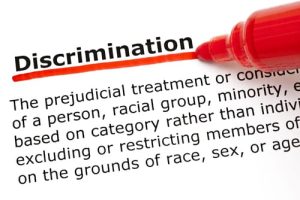Redundancy Selection: Turbulent Times Ahead?

After announcing large scale redundancies EasyJet has been facing criticism from pilots’ representatives after proposing that sickness will be used as a component in selecting who is to be made redundant.
The challenge of fairly selecting employees for redundancy will be one faced by many employers over the coming months. So, what should employers bear in mind when it comes to fair selection?
Selection won’t be required in every case
It may seem obvious but if an employer is proposing to make all employees who are in the ‘redundancy selection pool’ redundant there will be no actual selection required. This may be the case for example, if a whole department is being closed or a unique role is being made redundant so there is only one employee at risk of redundancy.
However, it will still be important to ensure the redundancy selection pool has been appropriately identified, meaningful consultation is carried out and alternatives to redundancy are considered. It is especially important to ensure that the selection pool has been appropriately identified if it is a ‘pool of one employee’ as it is more likely to be subject to scrutiny.
Method of selection
The most common way of selecting which employees are to be retained and which are to be made redundant is by using what is called a ‘skills matrix’. This involves employers identifying selection criteria and scoring employees on their performance in these areas. The employer will retain the employees with the highest scores and make those with the lowest scores redundant.
Selection criteria
When drawing up the proposed selection matrix, the criteria employers choose to use will depend on the needs of their business and the requirements of the roles that will remain. Employers do have discretion over the criteria they choose to use. However, they need to be careful to ensure that those chosen will be found to be reasonable and that they are used in a reasonable way. Employers should seek advice on the facts of their case from Kingfisher Professional Services Ltd.
It’s important for employers to bear in mind that some criteria can be problematic, these include:
- Attendance – this can potentially be a discriminatory criterion, as such consideration will need to be given to the reasons for any absence. If an employee’s absence is connected to a disability, their selection for redundancy on this basis can be an act of disability discrimination. Furthermore, employers also need to be careful regarding absences for family leave or dependents.
- Length of service – this criterion can potentially be discriminatory on the grounds of age or sex as such it’s advisable for employers to avoid using it as a criterion unless its inclusion is appropriate and it can be objectively justified.

- The ability to work unsocial hours – again, this can potentially be a discriminatory criterion. Employers will, for example, need to make sure there is no sex discrimination if female employees are unable to work unsocial hours because of childcare arrangements.
Employers should ensure that they use a reasonable number of criteria, that those used are objective, measurable and non-discriminatory. The scoring system should be fair and transparent and scores should be based on documentary evidence rather than on personal opinion wherever possible. It should also be born in mind that employees should be assessed over a reasonable period of time.
The matrix will be scored towards the end of the redundancy consultation process, once the criteria have been discussed and hopefully agreed with the employees who are at risk of redundancy. It is however important for employers to think about fair selection in the redundancy planning stage. This can help the redundancy consultation process run more smoothly and avoid mistakes being made.
If you are considering proposing redundancies in your organisation, please contact Kingfisher Professional Services Ltd for advice on the facts of your case before taking any action. We are here to help and can give practical guidance on all stages of the redundancy process.
